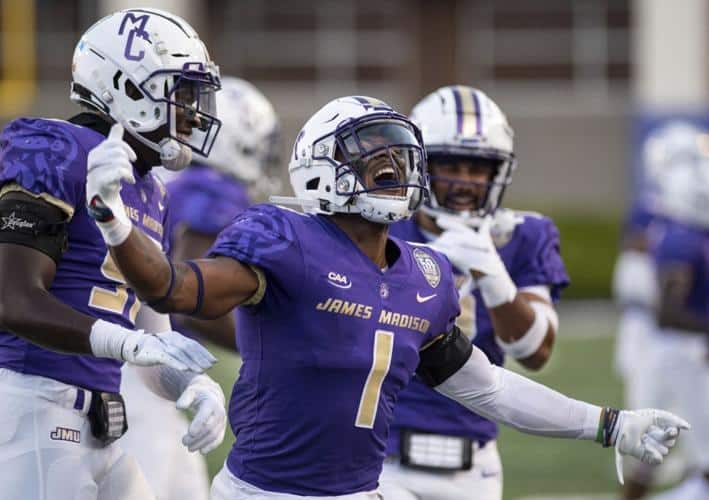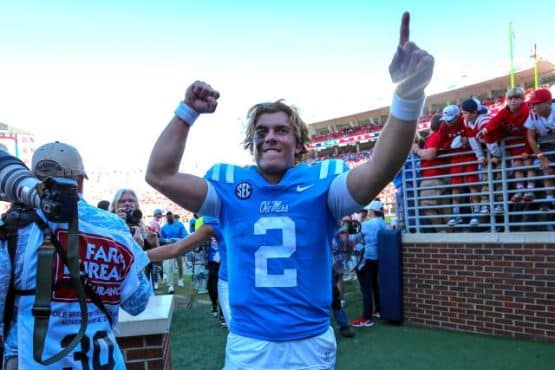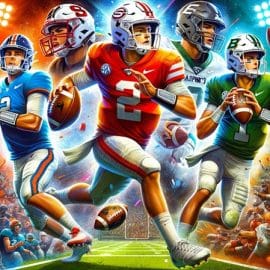James Madison University’s football team is in the midst of a perfect season, with an undefeated record that could potentially position them for a prestigious bowl game. However, due to NCAA regulations that govern the transition from the FCS to the FBS, the Dukes find themselves on the sidelines for postseason play.
JMU Seek NCAA Waiver to Play in Bowl Season
In a proactive step, JMU’s leadership took action by reaching out directly to the NCAA, seeking a waiver that would allow their college football team to compete in bowl games during their transition period. The university’s request, while rooted in specific bylaws, extends beyond the minutiae of rules—it stands as a testament to their belief in fair play and the welfare of their student-athletes.
This year, JMU has showcased why they belong in the FBS, with a series of impressive wins that include toppling a Power 5 opponent. Their current standing, at 21st in the AP poll is no fluke, the Dukes are a legitimately good team.
Despite their powerhouse performance, JMU’s bowl game prospects are dimmed by the FCS-to-FBS transition rule, which typically mandates a two-year waiting period before newly transitioned teams are eligible for bowl participation.
The request made by James Madison brings into focus the question of eligibility and fairness in NCAA football. It highlights the fact that the team’s exemplary performance should be sufficient for them to earn a spot in a New Year’s Six bowl, which rewards the top teams from the Group of 5 conferences.
Will NCAA Stick to the Rules?
The challenge now before the NCAA is whether to adhere strictly to its bylaws or to consider the unique circumstances of JMU’s transition. The Dukes’ administration argues that the team’s record, coupled with their compliance and advance adherence to FBS membership requirements, should pave the way for their inclusion in postseason play.
James Madison’s case is not merely about rewriting the rules but about interpreting them in the context of current-day college football, where the landscape has been significantly transformed by the transfer portal and NIL opportunities.
As the collegiate football community watches, the NCAA’s decision on JMU’s appeal will not only impact the Dukes’ season but could also set a precedent for future teams transitioning between subdivisions. JMU’s push for a bowl game berth is a compelling narrative of excellence, resilience, and the pursuit of fairness in the competitive realm of college sports.
The outcome now rests in the NCAA’s court, with implications for how transition rules are applied in an era of unprecedented change and challenge for student-athletes.
Add The Sports Daily to your Google News Feed!







